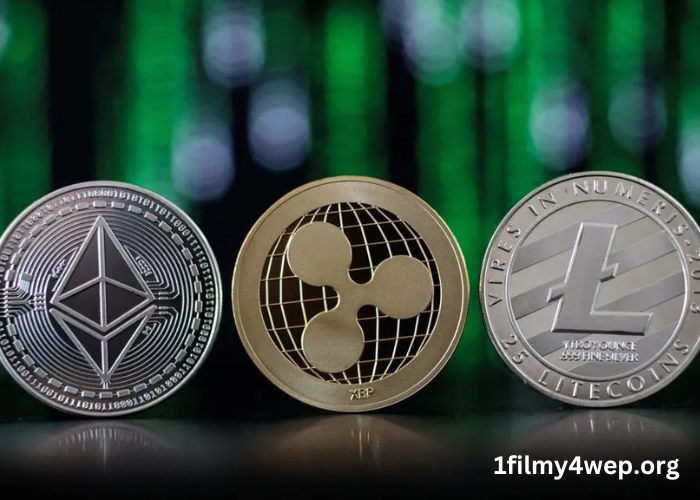‘Braid’ created history in 2018 as the first feature film to generate $1.7 million in just two weeks with blockchain technology. This innovative success marked a change in film financing, similarly to how Bitcoin’s disruptive influence on conventional finance. Unquestionably, cryptocurrencies are affecting movie funding as they also provide independent filmmakers more means for expressing their ideas.
Recent research also shows an increasing trend of projects supported by cryptocurrencies. According to a 2023 Blockchain in Film Association analysis, blockchain-based film financing increased by 35% over the year before. This surge in activity shows how receptive the sector is to creative finance ideas.
For independent producers, crypto-funding withBitcoin is fresh and fascinating. As we explore this subject, you will find how blockchain technology is democratizing the money behind the scenes and maybe changing the tales that find their way onto film. Let’s investigate the reality of this new funding source and how it will affect independent movies going forward.
Modernising our movie funding approach
Blockchain and bitcoin technologies are driving a major change in film finance. Innovative crypto-funding platforms are upending conventional approaches, usually defined by intricate studio systems with limited access to cash for independent filmmakers.
Offering a distributed film finance approach, Mogul Productions has high hopes of changing this. Their effective financing of ‘Bonded,’ generating more than $1 million in bitcoin, shows the promise of this method. This case study emphasizes how well the platform connects directors straight with a worldwide pool of investors, therefore avoiding established intermediaries.
Being the first movie released using blockchain technology, ‘No Postage Necessary’ also represented a turning point in 2018. This demonstrated the possibility for distributed, widely dispersed content and gave directors more control over the income sources and publication of their works.
Faster financial acquisition, worldwide investor access, and more creative autonomy for filmmakers are among the verified benefits of crypto-funding. Especially remarkable is the quickness of funding; some projects meet their targets in a few weeks instead of months or years.
Tokenizing a film investment
Preliminary data points to a notable boost in this area and one important element in this new finance scene is tokenizing. Filming investment is becoming more democratic as we translate film rights into digital tokens. Using this technology, platforms like FilmChain are leaping into this, guaranteeing open and quick payments to every project member, thereby optimizing income distribution.
Additionally important in this has been Smart Contracts. By automating difficult financial arrangements, these self-executing contracts lower overhead and help to minimize conflict. A smart contract, for example, can automatically allocate earnings to investors depending on pre-agreed conditions, therefore removing the middlemen.
For indie filmmakers, the effects have been significant. According to the studies, tokenization is helping initiatives that might have found it difficult to get conventional financing come to pass. Fifteen percent of indie filmmakers questioned in 2023 by the Independent Film & Television Alliance said they have used some kind of blockchain-based funding in the past year.
Difficulties for crypto-funded movies
Although the fast changing character of this makes precise numbers challenging to identify, conservative estimates indicate that over 100 films have been funded by tokenizing so far. As the technology develops and gets more embraced in the sector, this figure is sure to rise noticeably.
Tokenizing and crypto-funding have obviously walked beyond the notion that they’re fads, becoming a very real choice for movie finance. For both filmmakers and investors, these technologies present fresh opportunities that would result in a more varied and energetic movie. New stories with a new way of financing production, as it were.
Though there is continuous discussion on whether some crypto assets are suitable enough as securities, directly influencing attempts on film tokenization. The regulatory element (in America and internationally) remains a bit of a patchwork. Some initiatives, like the ‘Braid’ film ICO, structured their offerings as Simple Agreements for Future Tokens to handle legal grey areas.
Market volatility has also been a double-edged-sword. While some initiatives profited greatly from bitcoin price swings, others were too reliant on the highs, therefore struggled as prices dropped. Variations in Ethereum’s value during post-production caused delays in distribution for the ‘No Postage Necessary’ film. Another obstacle (although fully surmountable) is the technical aspect.Blockchain technologies, smart contracts, and digital wallets might all be difficult for many directors and investors to understand. This learning curve has slowed down acceptance and occasionally caused expensive fund management mistakes.
Change presents chances
Notwithstanding these difficulties, crypto-funded movies are becoming more popular still. Much as there was a change to DVD and then to digital, we should expect the same here. Although thorough success rate data is still developing, early signs point to blockchain-based fundraising models growingly practically and consistently.
For certain, crypto-funding is transforming independent cinema and providing fresh means of cash acquisition and creative control. Recent events point to an increasing maturity in this field – specifically, the emergence of NFT-based film finance and the inclusion of smart contracts in income distribution. That filmmakers are beginning to employ some kind of blockchain-based finance point is noteworthy, if still limited, showing growing acceptance in the indie film industry. It’s something to be enthusiastic about since it introduces a modern technology into the present.


rent luxury cars thessaloniki